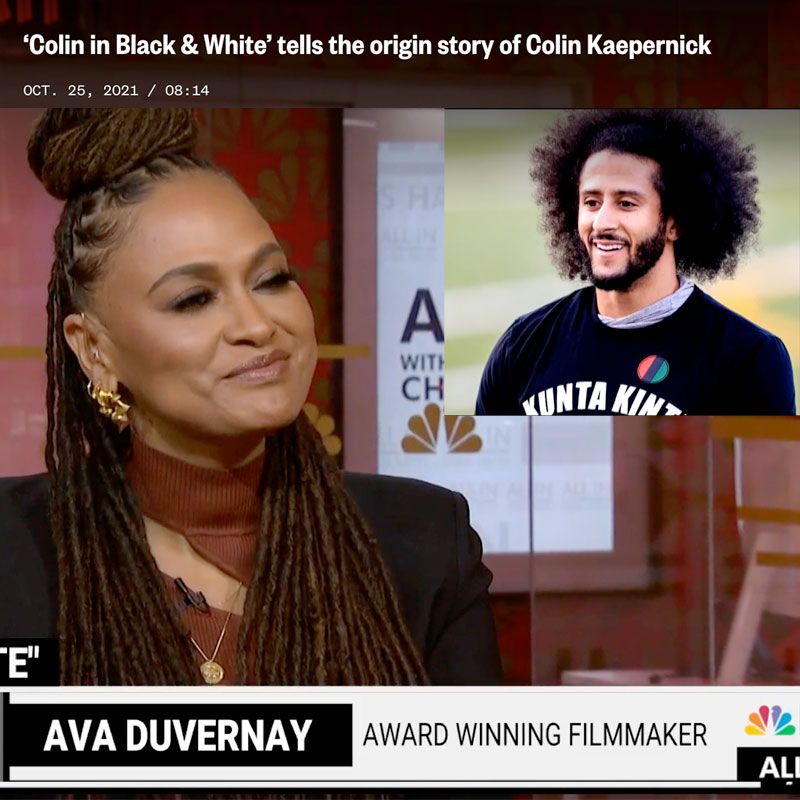Oct 26
Ava DuVernay on Microaggressions

Netflix is out with a new show on Colin Kaepernick’s early life,
produced and directed by award-winning filmmaker Ava DuVernay. She
explains what motivated her to do a story about a famous person, which
is, in her own words, “not my thing”.
She discusses how she got interested – “But as I start to hear his
stories, and all the microaggressions, and all the little things that
make up someone who had eventually become an American icon, a singular
figure in American culture, it became really fascinating me to use his
life as a springboard into larger conversations about race, caste,
class, identity, representation, all that good stuff. And so, we
collaborated in that way. And through that, he was able to speak and
express himself.”
Kaepernick was raised by his adoptive white parents and grew up in
predominantly white societies in Wisconsin and then California dairy
country. The show is worth a watch to expand your awareness of what it
is like for a biracial teenager to grow up inside a white majority world
of sports.
DuVernay continues to share why it was important to her. “For many
people of color, people who are outside of the box or outside the
dominant culture, these little microaggressions, these little things
that just feel like paper cuts are looms large in the — in the formation
and construction of who we are as, you know, larger societal
institutional issues. And so, I think for me, it`s someone who`s often
you know, analyzing and interrogating race in class and my work, the
idea that we can look at the small infractions, right, and to see how
much that is molding us to become who we are, became really interesting
to me.”
This is such an important point about microaggressions and what we’ve
been exploring here at SunShower in our work with Dr. Derald Wing Sue to
educate people about the harmful impact of microaggressions. The
longterm effect of receiving microaggressions on a person’s physical,
psychological and emotional health is well documented. This is why
workplaces need to not only raise awareness but also give people skills
to speak up to interrupt microaggressions when they happen. His
microintervention strategies, outlined in our course Disarming
Microaggressions, are important to learn. (Review) [link to our page for
Disarming Microaggressions]
In a recent call with Dr. Sue, he spoke to me about how microaggressions
are unintentional expressions of bias. He encouraged me to think of
them as reflections of internal superiority that is outside the
conscious awareness of a person. This means it’s incumbent on all of us
to become more aware how we were each conditioned to raise our awareness
of assumptions about people and situations so that we can be more
intentional to monitor and take different actions.
I highly recommend “Colin in Black & White” on Netflix.
Courses
Subscribe to our newsletter now!
Make sure you don't miss any sunshowers! We send out a newsletter email occasionally with course offerings, special discounts and, if we say so ourselves, interesting reflections.
Thank you!

